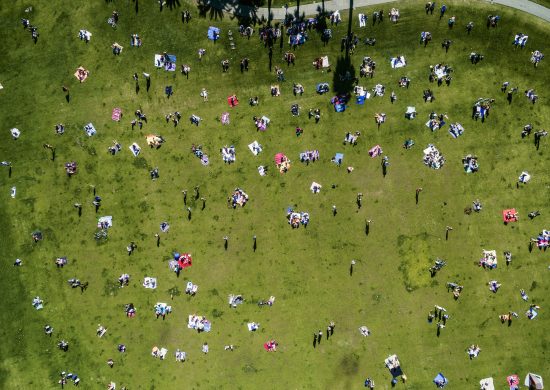Last month, I reached out to our partners to see how their worlds are evolving, what support they seek, and where the Pisces Foundation may be able to play a role. In the turbulent weeks since, I have spent a lot of time reconnecting with colleagues. I want to share what I am learning and how our Foundation is responding to what our partners are telling us.
Most of all, I would like to express my deep personal appreciation, and that of our trustees and staff, for the work environmental organizations, advocates, and activists continue to do every day. Our partners are among the leaders who lean into the challenge of forging a world where people and nature can thrive. This is hard work on the best day. It requires imagination and inspiration, grit and determination. During days like this, with the pressing need to care for loved ones, stay healthy, or get better, it is no small feat to march forward at all.
But our partners, and our field generally, are doing so. Like our Foundation team, they are fortified by the knowledge that the causes that drew all of us to this work—among them, clean air and water, just and healthy communities, a safe climate, teaching environmental know-how—remain as urgent as ever.
In so many ways, however, the degree of difficulty is even greater now. The pandemic is, on the one hand, a profound reminder of our fundamental need for each other, providing us all with a bracing recognition of our interdependence. But it has also, at least for now, generated more obstacles by physically separating us from each other and from important tools. For example, the places where advocates effectively press for change—from city council meetings, to the courts, to global climate rallies—are shuttered or operating virtually. If you are an organizer, a campaigner, an environmental lawyer, you know that the inability to gather, literally shoulder to shoulder, is no small loss, however temporary. At the same time, the EPA has not lost a step in moving ahead with its anti-environmental agenda, adding just last week a broad enforcement waiver to a tall stack of regressive policies.
So, it is the very least we can do at the Pisces Foundation—it is the very least philanthropy can do generally—to ease the burden of our partners in the ways available to us:
- We’ve sent our partners grant agreements for our recently approved docket. We are preparing as normal for the final docket of our fiscal year next month. We are continuing learning and planning efforts already underway, adding our best assessments of this uncharted time, to ensure we remain as effective as we can in propelling the goals we share with our partners.
- We are making it possible for our grantees to spend less time with us and more time on their work. Where needed, our grantees can get extensions of a grant period, report due date, and/or a change in grant scope. Our grantees can also opt to replace a written report with a verbal one.
- If we can be helpful, we’d like to make connection easier in new ways. Pisces program teams will hold online office hours. Just drop in. I will give it a try, too.
We hope that these steps are of some small assistance. Our program teams are following up with details.
Beyond this, I hope that all of us fortunate enough to be able to focus on what we can learn in this moment, do. For me, the last month has revealed the malleability of patterns and assumptions, both personal and professional, that until now often seemed unyielding and immovable. This recognition applies with special force for advocates, whose work each day depends on conjuring and pursuing a view of a better world and, equally, holding a productive suspension of disbelief in the face of powerful opposing forces.
If any of us doubted that things can change overnight, we now know that they can—and they do. This doesn’t make the change we seek easy. Nor does it mean that we have all the tools we could use—or that the ones we have are equally shared. But we can we take from this moment a deeper resolve, reinforced now in our lived experience, that apparently fixed objects aren’t always. Big systems can change. We can, from thousands of kitchen tables, and together soon, push them in better and more equitable directions.
My personal commitment, and that of our team, is to do all we can to be part of this change. To support it. To encourage it. And to be willing to leave some of what we thought we knew behind so that we can learn something new.
Be well.



